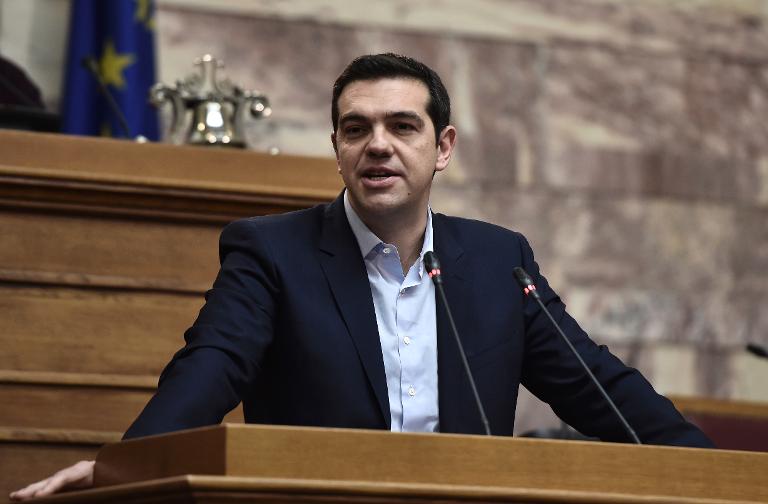
Greece eyes EU loan deal without painful bailout duties
Greek television reported Athens was seeking a six-month deal.
Europe and Greece are racing to come to an agreement and avoid a catastrophic Greek exit from the eurozone, after talks in Brussels ended in acrimony on Monday with both sides digging into their positions.
In an apparent bid to move the goalposts, Athens signalled it was interested in an extension of its loan agreement -- but one with no elements of the "memorandum" deal signed between the EU and Greece's former centre-right government.
Greece has become increasingly isolated and is facing an apparently united front of its eurozone partners, with influential German Finance Minister Wolfgang Schaeuble saying earlier Tuesday that Athens was trying to get something for nothing.
"They settle for saying 'we need more money now and we won't do anything anymore' and insult the others" who completed bailout programmes despite the severe austerity measures involved, he said.
"And that's not on. The Greek government must tell us how it wants to resolve Greece's problems," he told Germany's ARD television.
Prime Minister Alexis Tsipras's radical left government has bitterly rejected any suggestion of prolonging a bailout programme that it says comes with fiscal obligations which have damaged the Greek economy.
But with the European portion of the 240-billion-euro ($270-billion) bailout expiring at the end of February, Greece's creditors insist it needs extra financing to stave off the risk of a default and exit from the euro.
At the end of Monday's fruitless meeting, Eurogroup head Jeroen Dijsselbloem -- the Dutch finance minister -- said Greece had until Friday to request an extension to the bailout.
- No psychological blackmail -
Tsipras told lawmakers that Greece "will not accept psychological blackmail" and fanned the debt crisis flames by announcing parliament would vote on a series of social reform bills on Friday, when the deadline falls.
His "social salvation" government has pledged to spend two billion euros over the next year to provide free food, electricity, accommodation and medical support to thousands of poor families.
"This is the debt we must repay first. We will not betray the Greek people's confidence," Tsipras said.
The meeting Monday was the second time in a week that talks among eurozone ministers ended in acrimony amid accusations by Greece that Dijsselbloem, backed by Germany, had torpedoed deliberations.
Despite the wall of opposition, Greek Finance Minister Yanis Varoufakis predicted the different sides would find agreement in time to set up a new meeting for Friday.
"We know in Europe how to deliberate in such a way to create a very good solution, an honourable solution out of initial disagreements," Varoufakis said on Tuesday.
But the chaos surrounding the debt talks alarmed analysts, with economists at Commerzbank now predicting that a Greek exit from the euro was 50 percent likely, up from 25 percent.
IHS Economics and Country Risk warned that an inability to get concessions from Brussels would "increase government instability and the likelihood of protests and strikes."
"The rapid decrease in popular support could result in an early election," it said.
Tsipras is demanding that the eurozone agree to short-term funding to buy the time needed to hammer out a new deal, with lighter austerity conditions attached.
Greece has proposed to stick to 70 percent of the existing bailout programme but would demand an overhaul of the remaining 30 percent which it sees as damaging to growth and toxic for ordinary Greeks.
Varoufakis told reporters Monday that the European Commission had made a proposal along those lines but instead Dijsselbloem offered a different draft statement tying Greece to its current agreement.
This demand is key to Greece's 18 eurozone partners, especially Spain, Portugal and Ireland -- countries that also had to adopt tough austerity measures in return for loans after the 2009 global financial crisis.

Legal Disclaimer:
MENAFN provides the
information “as is” without warranty of any kind. We do not accept
any responsibility or liability for the accuracy, content, images,
videos, licenses, completeness, legality, or reliability of the information
contained in this article. If you have any complaints or copyright
issues related to this article, kindly contact the provider above.


















Comments
No comment